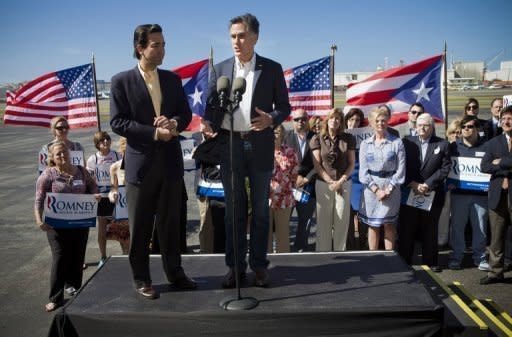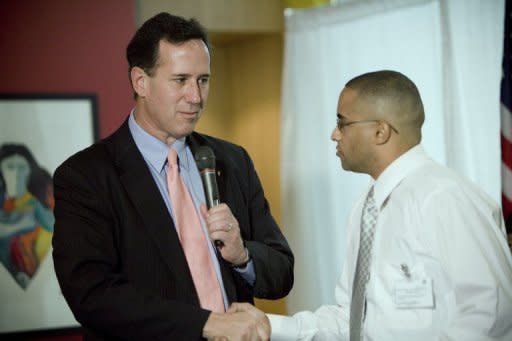Romney off to early lead in Puerto Rico
Mitt Romney got off to a big early lead Sunday in the US territory of Puerto Rico's Republican primary, a usually overlooked race with newfound significance in the White House race. Romney snatched 85 percent of the vote, while his closest challenger Rick Santorum stood a distant second at eight percent, with just over three percent of precincts reporting, early results showed. Former House speaker Newt Gingrich had 1.4 percent, just ahead of Representative Ron Paul's 0.7 percent, according to the State Elections Commission or CEEPR. The island off the US mainland has only 20 delegates at stake for the Republican National Convention in August but has been courted vigorously by the Republican contenders in part because the broader US Hispanic vote is seen as crucial to the election outcome. The four remaining Republican contenders are trying to reach the magic number of 1,144 delegates to lock up the nomination. Unless one candidate wins 50 percent or more of the vote in Puerto Rico, the commonwealth's delegates will be split proportionally. Romney, who came to Puerto Rico early Saturday and visited a local fruit market, told reporters he was "cautiously optimistic" for a strong showing. The former Massachusetts governor has the endorsement of Puerto Rico Governor Luis Fortuno, who shepherded the candidate through two days of campaign events. The vote comes one day after balloting in Missouri continues the process of selecting delegates and two days before Tuesday's primary in Obama's adopted state of Illinois, seen as a major election prize for whomever prevails there. Using the same strategy he has plied elsewhere, Santorum is hoping to deprive Romney of that outright win by turning out Christian and evangelical supporters here. But the former Pennsylvania senator -- seen as Romney's strongest rival for the nomination -- found himself in hot water last week by suggesting that Puerto Rico would need to make English its official language before it could become the 51st US state. The gaffe could cost him dearly in the commonwealth's primary. But Santorum doubled down on those remarks after earlier seeming to back away. "Yes, there were requirements put on other states when they came into the union that English be the principal language and that it be taught and spoken universally in those states," he told ABC television's "This Week" program. "There's only 15 percent, according to the census, (who) are fluent in English in Puerto Rico," he said. "There should be fluency in English as well as Spanish... I think it just makes sense, just like here in this country." One of the main areas of concerns to Puerto Rican voters is the candidates' views on whether the island should gain the right to become a US state. Romney, Gingrich and Santorum have all said they would back statehood for Puerto Rico as long as the commonwealth's voters support it in a November referendum. Laying out a policy more to the liking of most Puerto Ricans, Romney said he respected the fact that Spanish had been spoken in Puerto Rico for more than a 100 years and that he did not favor any changes to the official language as a condition for statehood. The Spanish-speaking island of 3.7 million has been a US possession since 1898 and residents are US citizens. Voters can choose party candidates, but since Puerto Rico is not a state, residents cannot vote in the November 6 presidential election.



